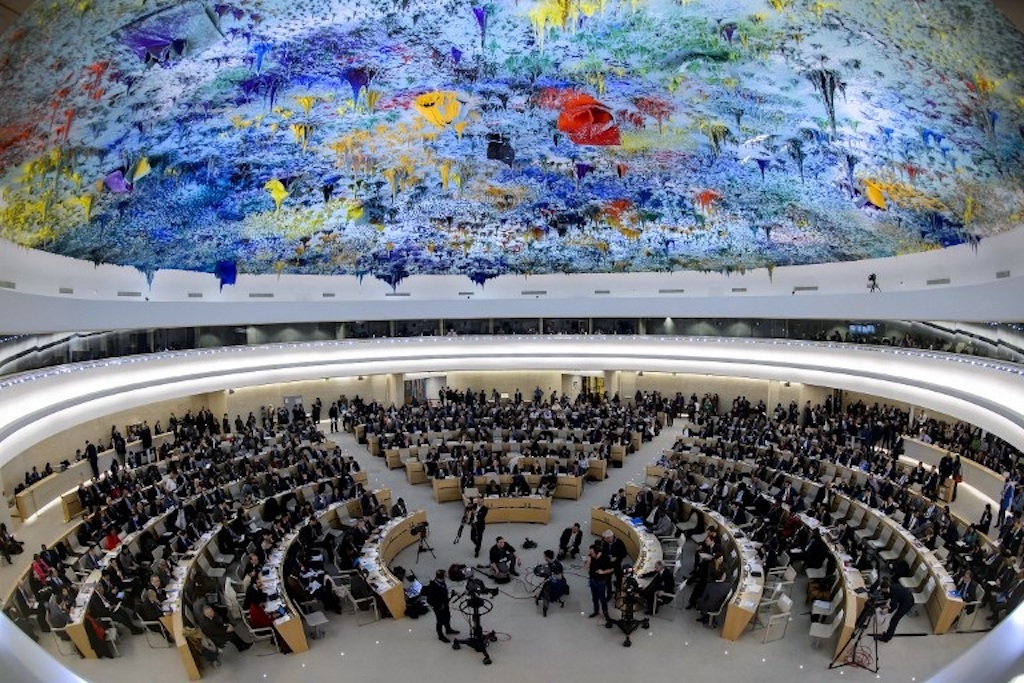Conclusion of the 33rd Session of the United Nations Human Rights Council
Geneva, Switzerland. October 3rd 2016. Last week marked the end of the 33rd session of the United Nations Human Rights Council which was held from 13 September to 30 September […]

Geneva, Switzerland. October 3rd 2016. Last week marked the end of the 33rd session of the United Nations Human Rights Council which was held from 13 September to 30 September 2016.
The Human Rights Council (HRC) opened with a briefing by the High Commissioner for Human Rights, Mr. Zeid Ra’ad Al Hussein, who devoted most of his regular address to ‘the growing refusal on the part of an increasing number of Member States to grant OHCHR, or the human rights mechanisms, access.’
Later, the HRC decided to amend the mandate of the Expert Mechanism on the Rights of Indigenous Peoples, which would assist Member States upon request to achieve the ends of the Declaration on the Rights Indigenous Peoples and extended by three years the mandate of the Special Rapporteur on the rights of indigenous peoples.
About the relevant resolutions adopted:
- The HRC adopted a resolution on the safety of journalists, calling upon States to develop and implement strategies for combating impunity for attacks and violence against journalists.
- Arbitrary detention was addressed by the resolution which extended the mandate of the Working Group on Arbitrary Detention for three years and requested States concerned to take appropriate steps to remedy the situation of persons arbitrarily deprived of their liberty.
- In another resolution, States were encouraged to establish effective, independent and pluralistic national human rights institutions and to strengthen the existing ones.
- In the resolution on the promotion of a democratic and equitable international order, the HRC called upon Member States to fulfil their commitments expressed during the World Conference against Racism, Racial Discrimination, Xenophobia and Related Intolerance.
About the relevant appointments:
The Council appointed five individuals to fill vacancies for Special Procedure mandate holders:
- Cecilia Jimenez-Damary (Philippines) as the Special Rapporteur on the human rights of internally displaced persons;
- Nils Melzer (Switzerland) as the Special Rapporteur on torture and other cruel, inhuman or degrading treatment or punishment;
- Asma Jahangir (Pakistan) as the Special Rapporteur on the situation of human rights in the Islamic Republic of Iran;
- Elina Steinerte (Latvia) as a member of the Working Group on Arbitrary Detention from the group of East European States.
- And finally, the Human Rights Council President appointed the first ever United Nations expert on sexual orientation and gender identity (SOGI), Mr. Vitit Muntarbhorn (Thailand).
Other matters of discussion:
- In the resolution on the human rights situation in Burundi, the Council created, for a period of one year, a commission of inquiry to conduct a thorough investigation into human rights violations and abuses in Burundi since April 2015, and to identify alleged perpetrators.
- The Council also decided to appoint, for a period of three years, a Special Rapporteur on the right to development.
- The resolution on the human rights situation in the Syrian Arab Republic asked that Syria immediately cease the use of chemical weapons, and demanded that all parties take all appropriate steps to protect civilians and allow for the full, immediate and safe access of humanitarian actors to the areas in need.
In concluding remarks, Choi Kyong-lim, President of the Human Rights Council, stated that he had received allegations of acts of intimidation and reprisals during the session, and that various representatives of civil society organizations had been banned from traveling from their home countries to Geneva to attend the session. “The participation of civil society in the Human Rights Council is crucial, and any act of intimidation and reprisal against an individual or group who cooperated with the Council is completely unacceptable”, stressed Mr. Choi.
The thirty-fourth session of the Council will be held in Room XX of the Palais des Nations from 27 February to 24 March 2017.
For more information, please contact our Legal Adviser in Geneva, Laia Evia, at Evia@oldrace.wp

